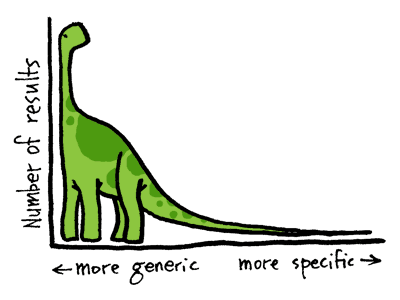It is no secret that search engines evolve along with the technology that supports them. One of the more recent changes involves implied usage and the tool that Google employs is Hummingbird. The hummingbird algorithm focuses on several aspects of SEO and specifically on both organic search results and PPC ads. The quality of the keyword or longtail keyword phrases remains part of the PPC matrix that forms the equation for Google’s Quality Score. Those factors include the quality of the keyword, the quality of your site or the historical performance of your ad campaigns, plus the current quality of your ad. Together those determine the relevance of your ad to searchers. Grammatically incorrect keywords and phrases now count against the quality of the relevance of your ad. This affects PPC by affecting the Quality Score.That impact affects your ad placement and the PPC rate.
Seeing is Believing
If you have done an internet search recently, you might have noticed that the search engine tries to anticipate what you, the searcher are seeking. That attempt to anticipate the searchers intent is exactly the power that PPC ad campaigns need to harness. It is there that organic search and PPC share a very relevant space. Consider phrases such as Ford Mustang Wyoming and why it is not not valid with Hummingbird. The reason is the same for why this is not valid for PPC. For one, there is no such thing as a Ford Mustang Wyoming even though the search engine may suggest such a search. What you are dealing with is an implied intent. If you break that down into real world, actionable pieces you find that you are dealing with a Subject + Location and not just a single intent… instead, you have multiple intents. That division needs to become part of the design for your ads. When that happen your ad relevance improves, the ad costs drop, and better placement occurs.
Implied Intent
Implied intent is now a super power of the Google algorithm for organic searches, but also it is part of the factors that affect ad relevance. The search engine has taken the anticipated searcher “internet” and divided it up into a multidimensional environment that bases SERPs on what it thinks the searcher wants. What the searcher wants affects PPC and ad placement. When you see a grammatically incorrect search term, you are looking at that equation.
The equation is the result of many different factors. Those factors include relevant keyword phrases. They contain things such as the searcher’s location, the topic of the search, and potentially even the most popular searches for that topic. All of those components impact the relevance of ads and PPC. Hummingbird tries to understand the searcher’s intent and offers suggestions. The core idea here is pairing. Google is always going to pair the best ad to the best search result. The second part of “pairing” occurs in the results. Those results are heavily impacted by user intent. An example:
Ford Mustang + Wyoming = Ford Mustang Sales in Wyoming.
Further; Ford Mustang + for sale + in Wyoming = implied intent. You can see how intent leads to ad relevance.
Content is King
Content is a point that Google has been preaching for a long while. Content is King. Ford Mustang Wyoming is not a great keyword phrase. It is not grammatically correct. It is confusing to readers and search engines. Therefore, Hummingbird will likely dump it. You want to tie your keyword to the location, but you want to do so in a grammatically correct way. Ford Mustang Cars in Wyoming or Buy a Ford Mustang in Wyoming are examples of good keyword phrases. Those keyword phrases direct the search engine in a more holistic way. They allow the content to be filtered to those people who want to buy a Ford Mustang and who live in Wyoming. This the exact audience that your ad targets. When ad keyword is grammatically correct, it improves the search engines ability correctly to pair your ad with similar content. Being able to capture that intent in ad design will make your ad more relevant to the searcher. That is a win, win, win for all involved.
Even though Hummingbird is tied to organic search results, it impacts PPC through relevance. Adding those concepts to ad design is important. Keyword choice is one of the most important factors that affect pairing of ads to content and finally to searchers. Relevant ads find relevant audiences and in so doing you win.





